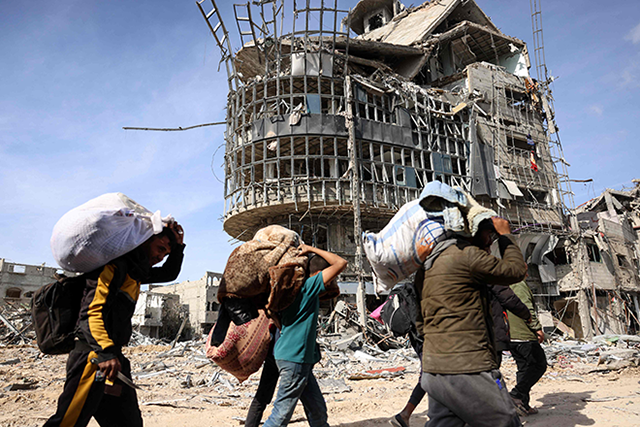JERUSALEM — As Israel prepares to welcome home the first of 33 hostages freed under a ceasefire with Hamas, health workers warn of the psychological challenges they face after their 15 months in captivity.
Nearly 2,000 Palestinian prisoners in Israeli jails are also set to be released as part of the agreement that took effect on Sunday.
Of the 251 hostages taken during Hamas's October 7, 2023, attack that sparked the war, 94 remained in Gaza as the ceasefire began, including 34 the Israeli military says are dead.
During a 42-day first phase of the ceasefire, Palestinian militants are due to free 33 hostages, starting with three women.
Throughout the war, there has been only one other pause in the fighting, a week-long truce in November 2023 that also saw the exchange of hostages for prisoners.
Amir Blumenfeld, a former chief of the Trauma branch of the Israeli army, said hostages released during that truce had suffered serious health issues.
"After 50 days of captivity, the hostages suffered from many physical and psychological problems," said the physician, a member of the health team of the Hostage Families Forum support group.
"This time, after [more than 470 days of detention], it's going to be horrible," he said, predicting drastic weight loss of up to "half or a third" of original body weight.
Haunted by captivity
Blumenfeld said the time it would take to heal from the physical injuries and ailments would vary from patient to patient, though he expected their recovery would ultimately be satisfactory.
But, he added, "the most difficult problem will be mental health".
Ilana Gritzewsky, freed during the November 2023 truce, described how a video released by Hamas of her partner, still held by the militant group, threw her back into her own ordeal.
She said she lost 11 kilos (24 pounds) during nearly two months in captivity.
"I also endured abuse. I was burned, lost partial hearing in my left ear, and dislocated my jaw," she told AFP.
"I was sexually harassed during the abduction" and "still suffer from the consequences", she added.
A December Israeli health ministry report sent to the United Nations highlighted testimonies of torture, including beatings, brandings, sexual assault, food deprivation and solitary confinement.
It said many former hostages now suffer from symptoms of anxiety, depression, post-traumatic stress disorder and survivor's guilt.
Under health ministry guidelines, the newly released hostages will be hospitalised for at least four days, with women undergoing pregnancy tests and psychiatric care being made available immediately.
